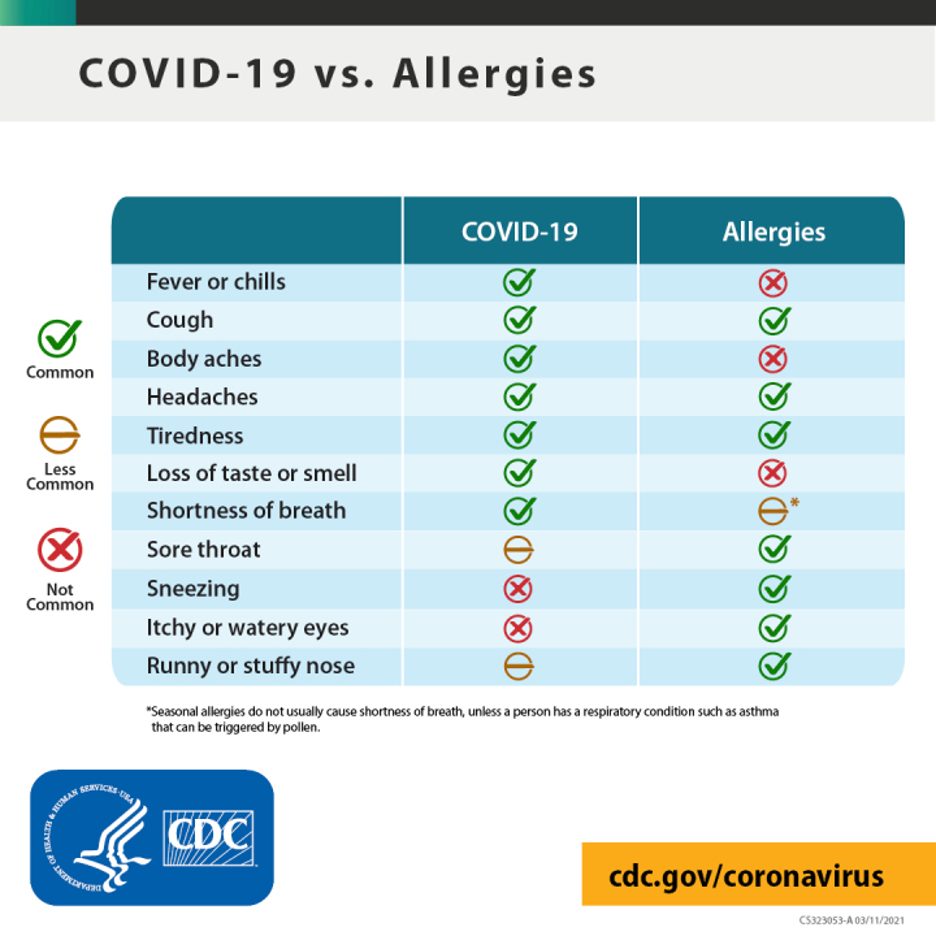Covid-19 or Allergies? How to Tell the Difference
May 7, 2021
As the seasons change from winter to spring, the yearly seasonal allergy symptoms are to be expected. Unlike a normal year, however, we have another concern: Covid-19. It can be rather difficult to discern the difference between typical seasonal allergy symptoms or more serious symptoms that accompany Covid-19 infection. Here are the CDC and other medical sources recommended precautions to differentiate between the two.
Having Minor Symptoms
Although some typical allergy symptoms look like Covid-19 symptoms, there are some ways to potentially rule out Covid-19. It is uncommon for seasonal allergies to cause shortness of breath, fever, and coughing, typical of Covid-19. A loss of taste or smell and gastrointestinal issues also may accompany Covid-19 infection. If these main symptoms are not present, it is probably more likely to be allergies.
Sneezing and eye itchiness is not currently a symptom of Covid-19, so if these symptoms are present it is likely just allergies
Taking Allergy Medicine
Taking allergy medications is a good way to determine if it is indeed allergies or perhaps something more. Usually, after taking over-the-counter medications, allergy symptoms will subside and be relieved. If these symptoms do not subside, however, it may be something more serious. It is recommended that a Covid-19 test then be administered or a preventative quarantine.

Bottom Line
When in doubt, please check with your doctor. Even the best service journalism cannot replace the advice and recommendations of a qualified medical professional.







